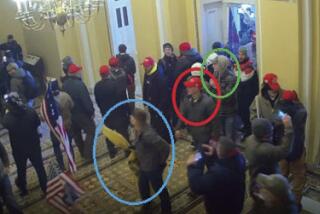Preserving the right to lie
The Supreme Court has agreed to decide whether misrepresenting oneself as a decorated combat veteran can be punished as a crime. If the 1st Amendment is to be taken seriously, the answer is no — disgusting as such an impersonation may be. As a federal appeals court judge who ruled against the government said: “The sad fact is, most people lie about some aspects of their lives from time to time. Given our historical skepticism of permitting the government to police the line between truth and falsity, and between valuable speech and drivel, we presumptively protect all speech, including false statements.”
Those are hard words, we know, for recipients of military honors and their families. They have every reason to despise Xavier Alvarez, who boasted, after his election to the Three Valleys Municipal Water District based in Claremont, that he was a retired Marine who had been awarded the congressional Medal of Honor. Alvarez, who also claimed to have worked as a police officer and played for the Detroit Red Wings, was convicted under the 2005 Stolen Valor Act, which made it a crime to falsely claim to have received a military decoration or medal.
But for the Supreme Court to uphold the punishment of false speech outside the context of financial fraud would undermine the 1st Amendment. If the Constitution allows Congress to criminalize falsely boasting about a medal, then other untruths could be made illegal — including Alvarez’s other lies.
In scrutinizing limitations on fundamental rights, the Supreme Court asks whether they are justified by a compelling governmental interest. The Stolen Valor Act identifies that interest as preventing “damage [to] the reputation and meaning of these medals.” But no one seriously believes people will think less of the Medal of Honor because someone pretends to possess one. If anything, anger at such a fraud reinforces the esteem in which the decoration is held.
In its petition to the court, the Obama administration cites other contexts in which false speech is unprotected, including fraud and defamation — harmful actions aimed at individuals that are not comparable to Alvarez’s misrepresentation. The court has been inconsistent about when and whether false statements enjoy constitutional protection, but in this case it should rule on the side of free expression. As for decorated veterans, no one can steal their honor.
More to Read
A cure for the common opinion
Get thought-provoking perspectives with our weekly newsletter.
You may occasionally receive promotional content from the Los Angeles Times.










